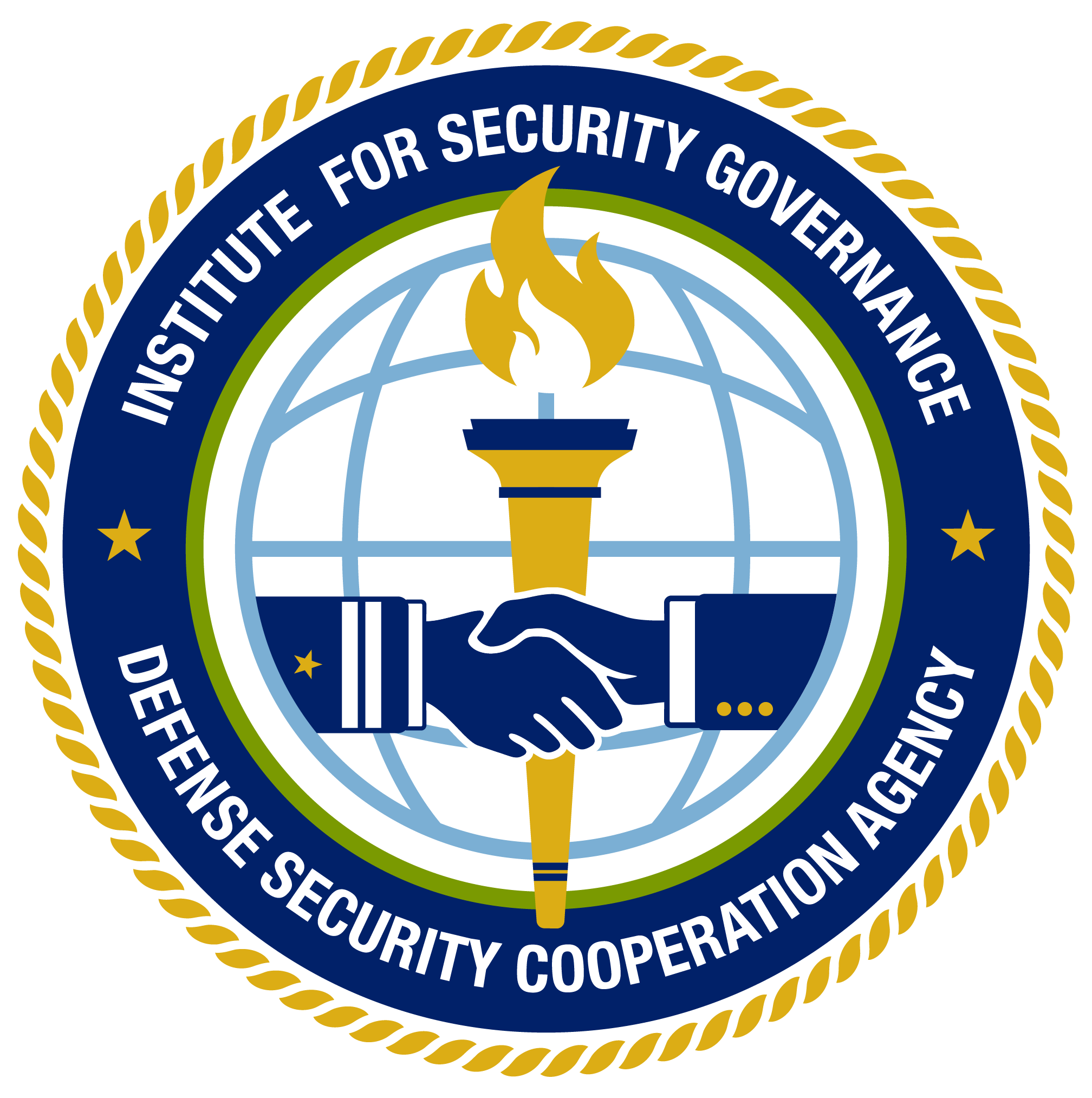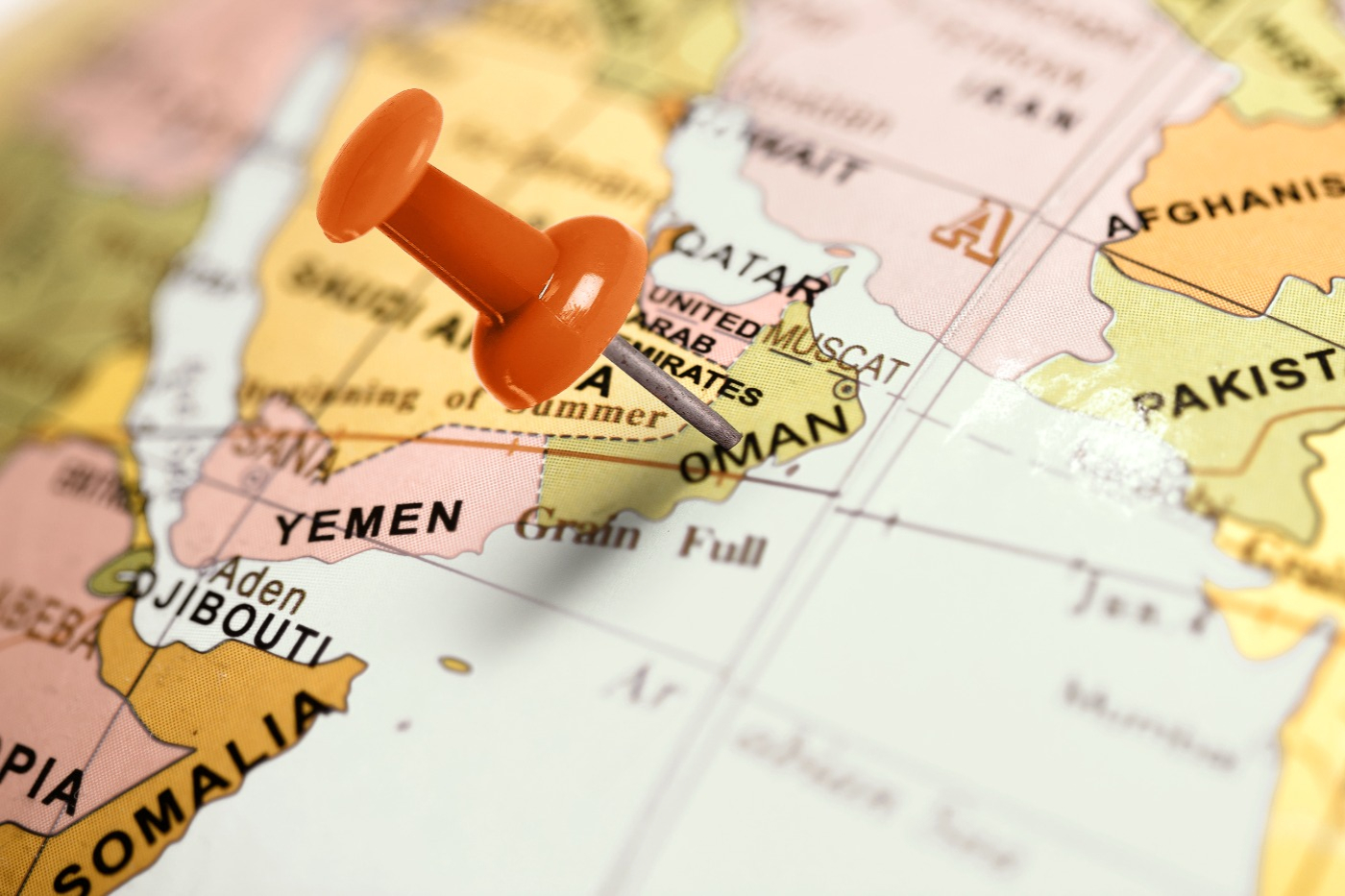ISG HELPS OMAN’S ABILITY TO PLAN FOR NATURAL DISASTER/CRISIS RESPONSE - Defense Security Cooperation University
ABOUT
defense security cooperation university
2800 defense pentagon, washington, dc 20301-2800
commercial telephone: 571-372-3728 (571-372-DSCU)
international toll-free: 833-438-3728 (833-GET-DSCU)
information requests: dsca.dscu.info@mail.mil
Social Media:
STUDENT SUPPORT
the school of sc studies
the institute for security governance
naval support activity monterey
1635 cunningham road (bldg, 259), monterey, CA 93943-5011
commercial telephone: +1 831.656.3171
fax: +1 831.656.3351
email: ISGINFO@NPS.EDU
website: instituteforsecuritygovernance.org
Social Media:
the defense institute of international legal studies
441 elliot avenue, newport, ri 02841-1531
commercial telephone: 401-841-6000
website: dscu.edu/diils
Social Media:
publications & resources
sc certification
-
ABOUT
- DSCU
- CAREERS & OPPORTUNITIES
-
ADDITIONAL INFO
defense security cooperation university
2800 defense pentagon, washington, dc 20301-2800commercial telephone: 571-372-3728 (571-372-DSCU)
international toll-free: 833-438-3728 (833-GET-DSCU)
information requests:
dsca.dscu.info@mail.mil
Social Media: - ABOUT
- STUDENT SUPPORT
- SSCS
-
ISG
- ABOUT
- OUR WORK
- NEWS
- RESOURCES
-
ADDITIONAL INFO
naval support activity monterey
1635 cunningham road (bldg, 259), monterey, CA 93943-5011
commercial telephone: +1 831.656.3171
fax: +1 831.656.3351
email: ISGINFO@NPS.EDU
website: instituteforsecuritygovernance.org
Social Media: - ISG
-
DIILS
- ABOUT
- LEARNING
-
ADDITIONAL INFO
441 elliot avenue, newport, ri 02841-1531
commercial telephone: 401-841-6000
website: dscu.edu/diils
Social Media: - DIILS
- RESOURCES
- CERTIFICATION
-
DSCU

Defense Security Cooperation University
CSOD Prelaunch Message
NOTE: A Common Access Card (CAC) and CSOD account are required
Registration is completed using a system called Cornerstone on Demand (CSOD) hosted by the Defense Acquisition University (DAU). You will sign in to this system on the next screen.
If you currently occupy a Security Cooperation Workforce position and do not see any courses listed after signing in to CSOD, please press the button at the top of your screen to open Frequently asked questions, and read the solutions under the "CSOD Sign In Issues" category.
Press the button below if you are ready to proceed. If you have trouble signing in, press the the next screen's "Need help signing in?" link To Get help.
Defense Security Cooperation University
Certification Center Prelaunch Message
NOTE: A Common Access Card (CAC) is required to access the Certification Center
If you receive an "Untrusted Site" or "Untrusted SSL Server Certificate" error when trying to access the Certification Center, please follow the instructions in the link below to update your Internet browser's certificates, and then try again.
How to Update Browser Certificates for the Certification Center

May 16, 2022
ISG HELPS OMAN’S ABILITY TO PLAN FOR NATURAL DISASTER/CRISIS RESPONSE
By Communications & Outreach Team
The Institute of Security Governance (ISG) inaugurated an Institutional Capacity Building (ICB) program in Oman in 2020 meant to strengthen the Partner’s ability to maintain border security and respond to local and regional threats to security. Recently, ISG conducted a multi-week workshop in Muscat for 75 people across the Sultan’s Armed Forces (SAF) and other Omani governmental ministries intended to develop the SAF’s operational planning capability. The workshop included a course on the joint planning process, combined with daily practical application using a disaster response planning scenario. Workshops like these provide the opportunity for Partner Nations to develop the capabilities to use a formalized planning process to address a myriad of threats. In this case, the scenario called for the SAF to respond to the landfall of a Category 1 cyclone in northeastern Oman similar to Cyclone Shaheen, which impacted Oman in September 2021.
Wade Evans, ISG’s Regional Program Lead for Oman explained that the mix of civilian and military participants was vital to the success of this engagement. “The representation from across the government and military offered the group important insights on how a ‘whole of government’ response must draw on all of the country’s strengths and capabilities,” he emphasized.
John Norris, a subject matter expert on planning and operations, developed the scenario and courseware for the workshop. “My experience over the past 30 years helped me understand that there are times when a government must use all of its resources to respond to a serious threat, whether it’s an enemy attack or a natural event,” he explained.
Throughout the workshop, Norris made certain the participants understood that the military tools and principles used to develop an operational plan can be used by anyone. The scenario involved a concept called “Defense Support to Civil Authorities.” Dutch Remkes, the ISG Country Program Coordinator for Oman, explained that “in Oman, the Royal Omani Police (ROP) is the designated ‘lead agency’ when the country is under the threat of a cyclone; any use of the military is designed to support the lead agency, not to replace it.”
During the final week, participants conducted a “wargame” to test the tools and principles of the joint planning process. The participants were divided into three operational planning teams; each team was given a unique “course of action” to analyze and to test for feasibility. After determining that all three courses of action were valid and feasible, each course of action was tested in the wargame. A meteorologist provided realistic cyclone weather inputs while John Norris changed the situation to test each course of action. For example, surface winds of more than 50 knots would prevent helicopters from responding to search and rescue requirements; a reduction in wind or a change in the location of a rescue requirement would test the decision process of each course of action.
On the last day of the wargame, the participants compared all three courses of action against a pre-agreed set of criteria and briefed their recommended course to the ROP Commander, a role played by Dutch Remkes. He chose a “hybrid” course of action that implemented strengths from all the prescribed courses; this demonstrated the degree of flexibility available to a commander within the joint planning process, an important learning outcome of the workshop.
“It is exciting to work with our Omani partners toward better whole-of-government responses to crises and natural disasters,” said Lieutenant Colonel Andrew Zapf, Chief of the Office of Military Cooperation in Muscat, Oman. “I’m sure the efforts made now to educate and train personnel from the Sultan’s Armed Forces and civilian ministries will enable a speedy and effective response should Oman experience another natural disaster.”
The planning course was so well received by the SAF that they are looking to make this an enduring part of the curriculum in support of their joint transformation efforts.